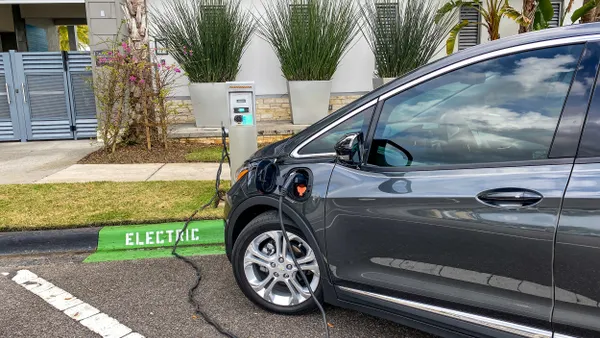Dive Brief:
- The ride-sharing company Uber is officially launching a new platform for healthcare-related rides.
- The dashboard, Uber Health, allows a healthcare worker to book a ride on demand or schedule a future ride for a patient. The passenger is alerted by text or phone call with trip details.
- The product has been tested by about 100 hospitals and doctor's offices so far, according to The Atlantic.
Dive Insight:
The news may not come as a shock, but it does draw a line in the sand for competitors.
During the Connected Health Conference in 2016, Lindsay Elin, director of federal and community affairs at Uber, announced the company was investing in a company team to work solely on healthcare.
Uber is also launching an Uber Health API to enable integrations into existing healthcare products. Features include access for patients without a smartphone, billing and reporting for organizations to keep track of spending on rides and HIPAA compliance.
Ride-share partnerships for hospitals help patients get to the facility. They can help patients get the care they need and it also helps providers by capturing revenue that may not have entered the building otherwise.
Every year, 3.6 million Americans miss doctor appointments due to a lack of reliable transportation. However, it's questionable whether rideshare services are reducing patient no-shows. Still, using rideshares is seen as a potential means to drive down healthcare costs by a) providing rides to preventative healthcare services and b) using emergency transit less.
“Uber has helped us drastically reduce appointment cancellations. It’s great to be able to quickly request a ride with so that in need patients can make an appointment they'd otherwise miss," Pete Celano, director of consumer health initiatives at MedStar Health, said in a statement Uber provided. “We have seen significant savings using Uber rides instead of taxis.”
Uber isn't the only name in the non-emergency medical transit (NEMT) game. Companies like Veyo are targeting Medicaid and Medicare patients and Circulation is offering a platform connecting ride-share services like Uber and Lyft for NEMT.
One study found when Uber enters a city, ambulance use decreases by at least 7%. However, using Uber as an ambulance can put a driver in an awkward position for suddenly taking on a job they weren't trained for.
In the NEMT space, Uber sees the $3 billion market and looks to take advantage of their name brand and past success in the space to gain market share.












